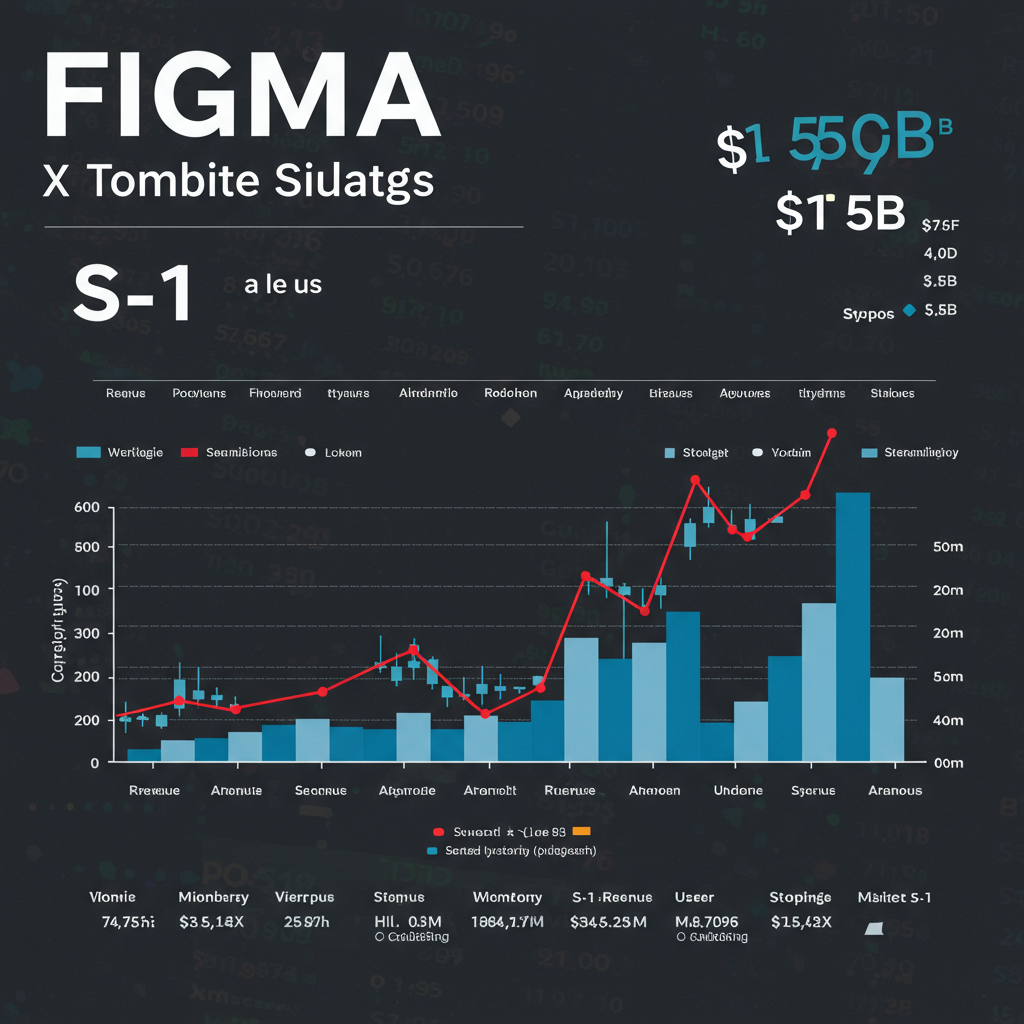Federal Reserve Governor Lisa Cook is embroiled in a high-stakes legal and political battle, vehemently denying accusations of mortgage fraud amidst efforts by President Donald Trump to remove her from the central bank’s board. This unfolding dispute goes far beyond personal allegations, raising critical questions about the cherished independence of the Federal Reserve and its vital role in the U.S. financial system. Cook’s legal team contends that Trump’s motives are rooted in a desire to influence monetary policy, specifically aiming to lower interest rates, rather than legitimate concerns about her conduct. The situation has drawn sharp rebukes from hundreds of economists, who warn that politicizing the Fed could have dire consequences for economic stability and public trust.
The Core Allegations Against Governor Cook
The controversy began with claims from Federal Housing Finance Agency Director Bill Pulte, a vocal Trump supporter. Pulte alleged that Governor Lisa Cook misrepresented her primary residence on mortgage applications for properties in Michigan, Georgia, and a condominium in Cambridge, Massachusetts. He suggested Cook fraudulently listed multiple homes as her primary residence around the same time in 2021 to secure more favorable mortgage terms.
Cook’s attorney, Abbe Lowell, has forcefully rejected these accusations. In recent court filings, Lowell stated unequivocally that Governor Cook “did not ever commit mortgage fraud.” He clarified that Cook’s official government questionnaires accurately differentiated her addresses, listing the Michigan property as her “primary residence” and the Georgia address as a “2nd home” or “present residence.” Furthermore, the Cambridge property was noted as both a “present residence” and “a second home and rental property.” Lowell emphasized that all relevant mortgage details and financial documents were disclosed to federal government entities, including the White House and Senate, prior to her confirmation in May 2022. This extensive disclosure, he argues, means that any perceived “facial inconsistencies” were known to officials, who had the opportunity to inquire at the time but did not. Cook’s team suggests that any discrepancies, if they exist, are likely unintentional “clerical errors” and do not constitute the legal standard of fraud or malfeasance.
A Politicized Criminal Investigation?
The dispute escalated dramatically with reports that the U.S. Justice Department has opened a criminal investigation into Cook’s mortgages, reportedly involving grand juries and subpoenas. Cook’s attorney, Abbe Lowell, swiftly condemned the probe, characterizing it as a “politicized overreach” orchestrated by President Trump. Lowell asserted that the administration is “scrambling to invent new justifications” for what he views as an illegal attempt to fire Cook, accusing the Justice Department of providing “cover” for Trump’s demands.
Adding to the political intrigue, Bill Pulte, who initiated the criminal referrals, had initially announced a press conference to present “new information” about Cook’s mortgages, promising retractions from those who defended her. However, he abruptly canceled the event following the public reports of the Justice Department’s criminal investigation, citing “respect for the process.” The Justice Department and the White House have largely refrained from commenting on the ongoing investigation, typically standard procedure, but in this context, it fuels further speculation. This sequence of events, according to Cook’s legal team, points to a desperate attempt to create a legal pretext for her dismissal.
Trump’s Bid to Fire Cook: A Battle for Fed Autonomy
President Trump’s attempt to remove Governor Cook marks a pivotal moment, as no U.S. president has ever successfully fired a Federal Reserve governor in the central bank’s 112-year history. Trump cited “cause” for Cook’s termination, specifically referencing her alleged “deceitful and potentially criminal conduct in a financial matter.” However, Cook’s lawsuit challenges the legality of this move, arguing that federal law only permits a president to fire a Fed governor “for cause,” a term traditionally interpreted as inefficiency, neglect of duty, or malfeasance committed while in office, and only after due process and a hearing. Cook received neither.
Her lawyers contend that Trump’s stated reason is a “mere pretext.” They assert that the president’s true motivation is to secure a majority on the Federal Reserve board with his own appointees, aiming to pressure the Fed to lower interest rates in line with his economic agenda. Public records, Lowell noted, are “replete” with Trump’s demands for the Fed to cut rates, warning of “consequences.”
The Justice Department, representing the Trump administration, countered Cook’s lawsuit by urging a federal judge to allow her immediate removal. They dismissed Cook’s claim that the firing is a “power grab” as “baseless,” arguing that the president has the discretion to fire Cook for cause and that such decisions are not subject to judicial review. Both sides have cited the 1935 Supreme Court case Humphrey’s Executor v. United States and Reagan vs. United States to support their positions. Cook’s attorneys argue that the Reagan precedent actually supports their right to notice, a hearing, and judicial review before removal, while the DOJ offers a contrasting interpretation, asserting unreviewable presidential discretion. This legal tug-of-war highlights a fundamental disagreement over presidential authority versus the statutory independence of the Fed.
Judicial Scrutiny and Calls for Recusal
The complex legal dispute is currently before U.S. District Judge Jia Cobb, who is presiding over Cook’s request for an emergency order to block her firing. In a move that further politicized the proceedings, President Trump publicly called for Judge Cobb’s recusal via Truth Social. He cited a perceived conflict of interest, alleging that Cobb and Cook are members of the same historically Black sorority, despite attending different colleges and the nature of their acquaintance remaining unclear. This demand adds another layer of controversy to an already charged legal battle, raising concerns about judicial impartiality in a highly scrutinized case.
Economists Rally to Defend Federal Reserve Independence
The attempts to remove Governor Cook and the ensuing criminal probe have sparked widespread alarm within the economic community. Nearly 600 economists, including Nobel laureates Joseph Stiglitz, Claudia Goldin, Alvin Roth, Paul Milgrom, and Paul Romer, signed an open letter warning against the severe implications for the Federal Reserve’s independence. The letter, also signed by former Federal Reserve economists and high-ranking advisors to previous administrations, unequivocally states, “Good economic policy requires credible monetary institutions. Credible monetary institutions, in turn, require the independence of the Federal Reserve.”
The economists emphasized that the Federal Reserve Act of 1913 explicitly designed the central bank to be independent and “insulated from day-to-day politics.” They warned that weakening the high standard for removing a governor “increases monetary policy uncertainty and forces markets to price political risk into interest rates, raising those rates and costs for families and businesses.” This erosion of trust, they argue, undermines a cornerstone of American economic vitality. House Democratic leader Hakeem Jeffries echoed these concerns, accusing the Justice Department of “weaponizing the federal government” against those who resist political pressure. Further concerns about Fed independence were raised during the Senate banking committee hearing for Stephen Miran, a Trump economic adviser, whose proposal to take an “unpaid leave of absence” from his White House role rather than resigning for a Fed board confirmation sparked criticism from senators regarding compromised independence.
The Stakes: What This Means for the US Economy and Monetary Policy
The ongoing legal and political dispute surrounding Governor Lisa Cook carries profound implications for the U.S. economy and the future of monetary policy. The Federal Reserve’s ability to make unbiased decisions on interest rates and inflation, free from political influence, is widely considered essential for long-term economic stability. If a president can easily remove a governor for policy disagreements or for reasons challenged as pretextual, it could fundamentally alter how the central bank operates.
Such actions risk creating an environment where monetary policy becomes subject to short-term political cycles rather than data-driven economic analysis. This heightened political risk could translate into increased market volatility, higher borrowing costs for businesses and families as markets price in uncertainty, and a significant loss of international confidence in the stability of the U.S. financial system. As the Fed appears poised to consider lowering its target interest rate, the fight over Cook’s position intensifies the debate over who ultimately controls the nation’s economic levers and what standard of independence the central bank can truly maintain.
Frequently Asked Questions
What are the specific mortgage fraud allegations against Federal Reserve Governor Lisa Cook?
Federal Housing Finance Agency Director Bill Pulte alleged that Governor Lisa Cook committed mortgage fraud by inaccurately listing properties in Michigan, Georgia, and a Cambridge, Massachusetts condo as a “primary residence” on mortgage applications around the same time in 2021. This practice, if proven, could secure more favorable mortgage terms. Cook’s attorney, Abbe Lowell, vehemently denies these claims, stating that all relevant information was fully disclosed to government entities before her Fed confirmation, and that any perceived inconsistencies were known and potentially “clerical errors,” not fraud.
Why is Federal Reserve independence considered crucial, and how might this dispute affect it?
Federal Reserve independence is crucial for shielding the central bank from political pressures when making complex decisions about interest rates, inflation, and economic growth. This autonomy allows the Fed to act in the nation’s long-term economic interest, rather than being swayed by short-term political cycles. The dispute over Governor Cook’s removal, particularly the claims of politicized investigations and motives to influence interest rates, threatens to undermine this independence. Such actions could erode public trust, increase monetary policy uncertainty, and force markets to price political risk into interest rates, potentially leading to higher costs for consumers and businesses.
What are the legal arguments surrounding a President’s ability to remove a Federal Reserve Governor “for cause”?
The Federal Reserve Act states that a president can only remove a Fed governor “for cause.” Cook’s legal team argues this traditionally means inefficiency, neglect of duty, or malfeasance during their term in office, and requires due process including notice and a hearing, which Cook did not receive. They contend that President Trump’s reasons are a “pretext” for wanting to influence interest rates. Conversely, the Justice Department argues that the president has broad discretion to determine “cause” for termination and that such a decision is generally unreviewable by courts. This interpretation highlights a significant legal clash over the scope of presidential power versus the statutory protections for independent federal officials.
The legal and political saga surrounding Federal Reserve Governor Lisa Cook represents a critical juncture for the U.S. financial system. Her attorney’s steadfast denial of mortgage fraud allegations, coupled with claims of a politicized criminal investigation, frames the dispute as a direct challenge to the Federal Reserve’s autonomy. As hundreds of economists rally to defend the central bank’s independence, the outcome of this unprecedented battle will not only determine Governor Cook’s future but also set a powerful precedent for presidential power over independent institutions. The ongoing legal proceedings and political maneuvering underscore the immense stakes for economic stability and trust in America’s most vital financial institutions.




